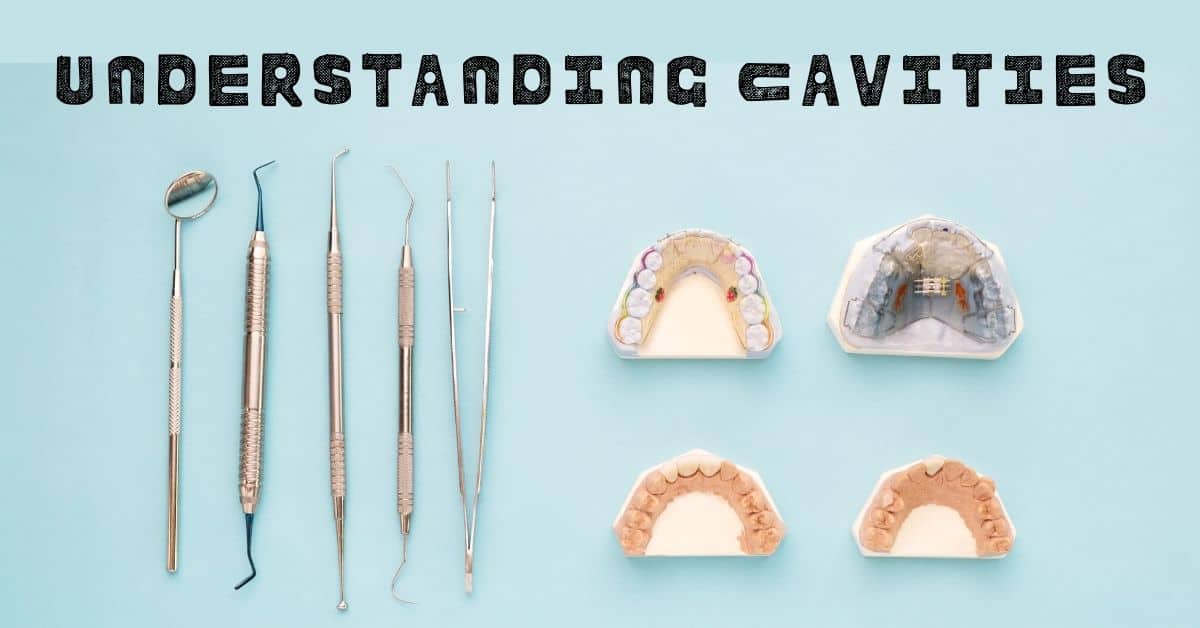Good dental health requires daily tooth brushing and regular trips to the dentist for routine cleanings. Along with good eating habits, your teeth will cause you no problems, but sometimes you miss parts of your routine, and trouble starts. It might start as an ache when eating certain foods or sudden sharp pain when biting down into something firmer.
What is a Cavity?
A cavity is tooth decay. Tooth decay is part of your teeth that are permanently damaged. Areas around your teeth start to develop surface damage, and eventually, little holes open.
What are the symptoms of a cavity?
Not everyone gets the same symptoms of a cavity, and there are the lucky few who get no symptoms at all. The degree of severity depends on the length of time the cavity has existed and where it is in the mouth. The symptoms of a decline in dental health include:
- Mild or sharp pain while eating or drinking.
- Toothaches.
- Sooth sensitivity.
- The pain will occur when you bite down on food.
- You will start seeing holes or pits opening in your teeth.
- Colorful stains that are black, brown, or white on the surface of your tooth.
What Causes Cavities?
Tooth cavities occur because of buildups of plaque on your teeth. Plaque is a substance that binds to your teeth, especially around your gums. Plaque is a combination of things in your mouth, including acid, bacteria, food particles, and saliva. Your mouth needs a certain amount of bacteria and saliva in your mouth to help break down food and eat.
There are three stages of tooth decay as they develop and progress. The plaque will form on your teeth; your plaque will attack and start erosion on your tooth, and continue the destruction of the rest of your teeth as it moves from nerve and blood vessels. The area around the tooth will become irritated and swollen with the bacteria buildup.
When you are eating foods with sugar, cause the bacteria in your mouth to turn the sugar into acid. The acid causes plaque to start forming on your teeth after you eat or drink anything with any sugar. The plaque sits on top of your teeth and slowly eats into it, eroding the enamel of the tooth, which protects it.
The location of the tooth, most often the molars and premolars, grow pits and collect pieces of food. These teeth are harder to clean than other teeth and require careful care. Most toothbrushes can’t reach that far back in your mouth, which makes it easy for plaque to form and for tooth decay to follow.
What treatment options are available to treat cavities?
You should report any pain, tooth sensitivity or tooth aches in Sarasota dentist. Your dentist will perform an oral exam and identify any signs of tooth decay, cavities, or other problems that might not be visible. An X-ray is a good way to identify tooth decay, as well.
If your dentist finds tooth decay, the following will be options they will address with you:
- Tooth Fillings
Your dentist will drill into the tooth to remove the decay. They will fill them with a substitute substance that is strong enough to withstand cavities such as gold, silver, or a resin.
- Root Canal
When tooth decay is in the advanced stages, the nerve of the tooth dies, and your dentist will need to drill into your tooth to remove the dead and decayed materials around the tooth. To prevent tooth ache, Sarasota dentist will check and remove any infection they find and possibly create a crown on the tooth.
- Crowns
A crown is a cap the dentist will place over a severely decayed tooth or chipped tooth sarasota dentist removes any decay from around the tooth before the crown is placed.
Early Treatment for Tooth decay
Your dentist will find any signs of early tooth decay is part of dental health. They will counsel you to brush your teeth better, use an electric toothbrush, or start a fluoride treatment to help prevent further days and restore tooth enamel.
How Can You Prevent Cavities?
The best way to prevent cavities is to brush your teeth at least twice a day or after every meal and floss regularly. You can also visit your dentist every six months for a regular check-up and cleaning.
JC Dentist
For all of your dental health needs visit us Sarasota Dental Office. We can offer advice without judgment and discuss treatment options with you. Contact us today for an appointment.
- Do You Need a New Toothbrush? - February 1, 2023
- How Often Should You Visit the Dentist? - January 2, 2023
- Are Christmas Cookies Bad for Your Teeth? - December 1, 2022


